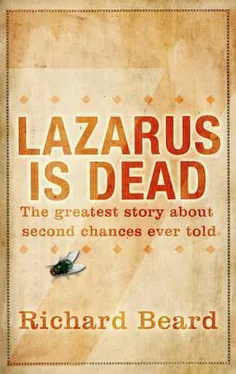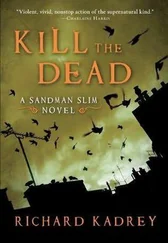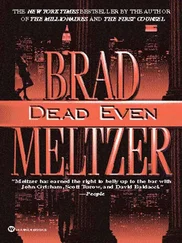‘How can that be? How did you know I was coming?’
‘A Roman called Cassius claims you can help us.’
‘Cassius didn’t send me. I wanted to talk about Saloma.’
‘We know.’
In an upper room, with lamps alight, Isaiah’s women have attempted to soften the atmosphere — they don’t have Lydia’s experience. Saloma is overdressed and areas of the uncovered wall make harsh reflections from the flames. She is lying in a nest of cushions. Her bare feet twitch in terror. She whimpers, turns to the wall and buries her face in her arms.
Isaiah and his wife accompany Lazarus to the room. After four days in a Roman cell he stinks of sweat but neither of them cover their noses.
‘Signs and wonders,’ Isaiah says, gesturing towards Saloma in the corner. ‘Now is your chance to make me believe.’
‘That isn’t why I came. I wanted to tell you we can’t get married.’
‘You are betrothed,’ her mother says.
Isaiah nods. ‘By law you can touch my daughter.’
Lazarus feels the strength of their longing. They want so much to believe that Lazarus, even against their instincts, is true. He kneels beside Saloma and she bangs her head against the wall. Then she covers her ears with a blanket. He reaches out towards her, stops, feels the heat from her hunched shoulders on his hand.
‘Heal her!’ Isaiah desperately wants Cassius to be right. Lazarus has died and is now alive and he will touch Saloma and through this miraculous contact Saloma will be healed. ‘You or Jesus, I don’t care which. Come on, Lazarus. Do some work.’
Lazarus rocks back and stands up. He has not touched Saloma. He realises, possibly for the first time, that he is not the equal of Jesus.
‘I’m not a healer.’
‘You didn’t even try.’
‘You’d have to ask Jesus,’ Lazarus says. ‘And probably believe in him too.’
Isaiah flares his nostrils. ‘That’s very convenient, because Jesus has gone into hiding. Somewhere in the Lower City, with the thieves and prostitutes. How can he help if we don’t know where he is?’
‘I’ll find him for you. I used to know my way around.’
1
HAVE YOU FOUND Jesus?
This is what they ask when they come to the door. Christ on earth is elusive. If he had never gone missing, we’d know where he was.
The hide-and-seek of the Christian Jesus has its origins in Holy Week, because the bible never commits to his exact whereabouts. In the Gospel of Mark, Jesus spends Sunday night in Bethany. There is no mention of Lazarus, because Lazarus is imprisoned in the Antonia Fortress. Jesus uses Bethany as his base until Wednesday morning, and then he stays in Jerusalem.
His movements are kept secret intentionally, and the theologian Marcus Borg cites Judas Iscariot as the reason: ‘By reporting that Jesus sent two disciples to make clandestine arrangements for the Passover meal, Mark has Jesus withhold from Judas its precise location, so that Judas cannot tell the authorities where to find Jesus during the meal.’
The instructions given by Jesus suggest a network of contacts attuned to preconceived signals and coded phrases: ‘ Go into the city, and a man carrying a jar of water will meet you; follow him, and wherever he enters, say to the owner of the house, “The Teacher asks, Where is my guest room where I may eat the Passover with my disciples?” He will show you a large room upstairs, furnished and ready. Make preparations for us there ’ (Mark 14: 13–15).
Lazarus has been separated from Jesus for many years, living far away in Bethany. He has been sick, and he died. On the Thursday, after his escape from the Antonia, Lazarus can know none of the prearranged signals. He like everyone else has to search for the son of god, and for the same reason: if he finds Jesus, Jesus may have the answers. Why should Lazarus be alive? What is the purpose of his existence? He wants a second chance at asking what his second chance is for.
His first task is to infiltrate the Jesus network in the Lower City. He knows someone who should be able to help.
2
Lazarus launches himself up the ladder two rungs at a time, and bursts into Lydia’s attic. The lamps are flickering but Lydia is not at home.
Baruch slams the trapdoor shut.
‘Make yourself comfortable. No charge.’
For the first time Lazarus gets a clear view of the assassin sent to kill him. He is dark, heavy, an offence against Lydia’s careful version of heaven.
Lazarus recoils and trips over a cushion. He has a soft landing. He looks desperately for a weapon, grabs a rounded flask of perfume and holds it ready. ‘What have you done with Lydia?’
‘She hasn’t been here since Saturday. Remember Saturday? You came back from the dead.’
Baruch feints one way but moves the other, easily deflects the bottle that Lazarus throws at him. He catches Lazarus by the arm and tumbles him into the cushions, jamming his elbow into his side. He reaches round Lazarus’s neck, and grips him by the jaw. He could break him like a chicken.
‘If I wanted to kill you you’d be dead, several times over. The Sanhedrin priests have changed their plan. I’ve been ordered to leave you be.’
Lazarus tastes the salt sweat from Baruch’s palm. He can feel the creak of his bones about to break.
‘They’re aiming for Jesus instead. He shouldn’t have upset the tables of the moneychangers. By doing that, he saved your life.’
Baruch pats Lazarus twice on the cheek, then releases him. ‘I should say he saved your life again. Twice in a week. Some friend.’
Lazarus rubs blood back into his arms. ‘If you’re not going to kill me, what do you want?’
‘Very little. Hardly anything. Just one thing. It’s about last week, and where you went. I want to know if there’s anyone waiting.’
In the tomb Baruch had been nervous, uncertain. Now that he’s had time to think, he is terrified. He has always sincerely believed that when his victims died they were dead.
‘Remember I could have killed you. So tell me. Are they waiting? It’s not as though I make the decisions. I just do the killing.’
Lazarus says: ‘I’m looking for Jesus. Do you know where he is?’
‘Maybe they’ll forgive me. In the Sicarii our training starts at seven years old. I never had any choice.’
‘Help me find Jesus. I know you can do that.’
Baruch looks up sharply. ‘Are you after the money?’
‘What money?’
‘The priests have set money aside, as a reward for whoever brings him in. Someone will claim it sooner or later.’
‘But not you?
‘I’m a killer. That’s what I do. I’m not an informer.’
‘So you do know where he is?’
‘I know where he was last seen. Tell me what I can expect on the other side.’
Lazarus stares into the assassin’s frightened, unblinking eyes. In return for news about Jesus, he gives Baruch what he wants.
Cassius needs five or six men, no more, but he is out of the habit of asking permission.
‘You were wrong about Jesus,’ the governor says. He is a balding, middle-aged administrator. Every inconvenience is a direct assault on the authorised idleness he’d been promised. ‘You reported in writing both to me and to Rome that Jesus couldn’t gather a following in Jerusalem. You captured Lazarus but you let him escape.’
The governor is not impressed. He has cancelled all leave, and Cassius will not be allocated even one soldier to develop his hunches about Lazarus. Passover is a volatile festival. It reminds the Judaeans that they’re expecting a messiah and the end of the world, but there will be no end of the world, not with Romans in charge.
Читать дальше












